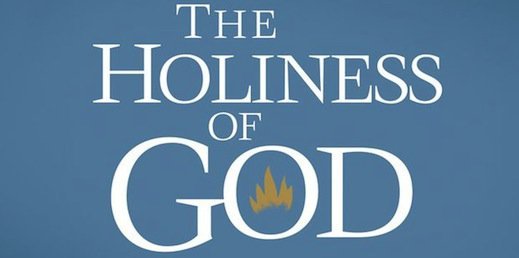At long last it is time to read another classic work of the Christian faith, and to read it together. This time around we are reading R.C. Sproul’s book The Holiness of God. Of all the books we’ve read in this Reading Classics program, this is the one that has been written most recently (1985). And yet there is little doubt that it is a classic, even if we must add the word “modern” to the monicker. It’s a modern classic and one destined to stand the test of time, I’m sure.
Over the next 11 weeks we are going to be reading this book together. If you are interested in participating, you are free to do so. All you need to do is find a copy of the book and read (or listen–use coupon code CHALLIES10 to get the audio book for just $2.98) along with us. Check in here every Thursday for your chance to reflect on the book or simply to read the reflections of other participants. It’s that simple.
And away we go…
Summary
This week’s reading was chapter 1 which is titled “The Holy Grail.” Sproul begins with a little biographical snippet in which he relates a time in his Christian life when he became aware of God’s holiness. He says that until this time he was a Unitarian of sorts, someone who loved Jesus but who had not yet come to love or appreciate the Father. And yet in a moment he was given a sense of the majestic holiness of God. And his life was forever changed.
In this initial chapter Sproul starts to introduce this God, this Father. He first introduces him as the creator, as the one who existed before anything else existed. He contrasts the beauty and power of God’s creative act with the folly of believing that all that is came out of nothing. “Some modern theorists believe that the world was created by nothing. Note the difference between saying that the world was created from nothing and saying that the universe was created by nothing. In this modern view the rabbit comes out of the hat without a rabbit, a hat, or even a magician. The modern view is far more miraculous than the biblical view. It suggests that nothing created something. More than that, it holds that nothing created everything–quite a feat indeed!”
Against this idea of creation by nothing, he presents the personal, active God. “The God we worship is the God who has always been. He alone can create beings, because He alone has the power of being. He is not nothing. He is not chance. He is pure Being, the One who has the power to be all by Himself. He alone is eternal. He alone has the power over death. He alone can call worlds into being by fiat, by the power of His command. Such power is staggering, awesome. It is deserving of respect, of humble adoration.”
Writing of his “second conversion,” his sudden understanding of God’s holiness, he relates a little bit of the passion he brings to this book: “Today I am still absorbed with the question of the holiness of God. I am convinced that it is one of the most important ideas that a Christian can ever grapple with. It is basic to our whole understanding of God and of Christianity.”
Why is it so important to understand God as he is? “How we understand the person and character of God the Father affects every aspect of our lives. It affects far more than what we normally call the ‘religious’ aspects of our lives. If God is the Creator of the entire universe, then it must follow that He is the Lord of the whole universe. No part of the world is outside of His lordship. That means that no part of my life must be outside of His lordship. His holy character has something to say about economics, politics, athletics, romance–everything with which we are involved.”
If we are to live in a way that pleases God, we must be like God. God says, “Be holy, because I am holy” and in so doing, calls us to understand what holiness is. And we will begin to investigate that in chapter 2.
This is the second time I have read this book in just a few months and I am very excited to do so again. Sproul’s passion for holiness is contagious. I see how his life has been marked by this study, and I find that I want what he has. I want to be as excited about the character of God as he is. When I’ve read this book in the past it has always moved me to worship and I am convinced it will do so again this time. And for that reason, among others, I’m already anticipating reading chapter 2 for next week.
Next Week
For next Thursday please read chapter 2, “Holy, Holy, Holy.”
Your Turn
The purpose of this program is to read these classic books together. This means that it’s now your turn to offer your thoughts or your questions on this week’s reading. You can do so by leaving a comment here or by posting a link to your own site if you left a comment there. Of course there is no need to say anything. Just read and enjoy if that’s more your style.










